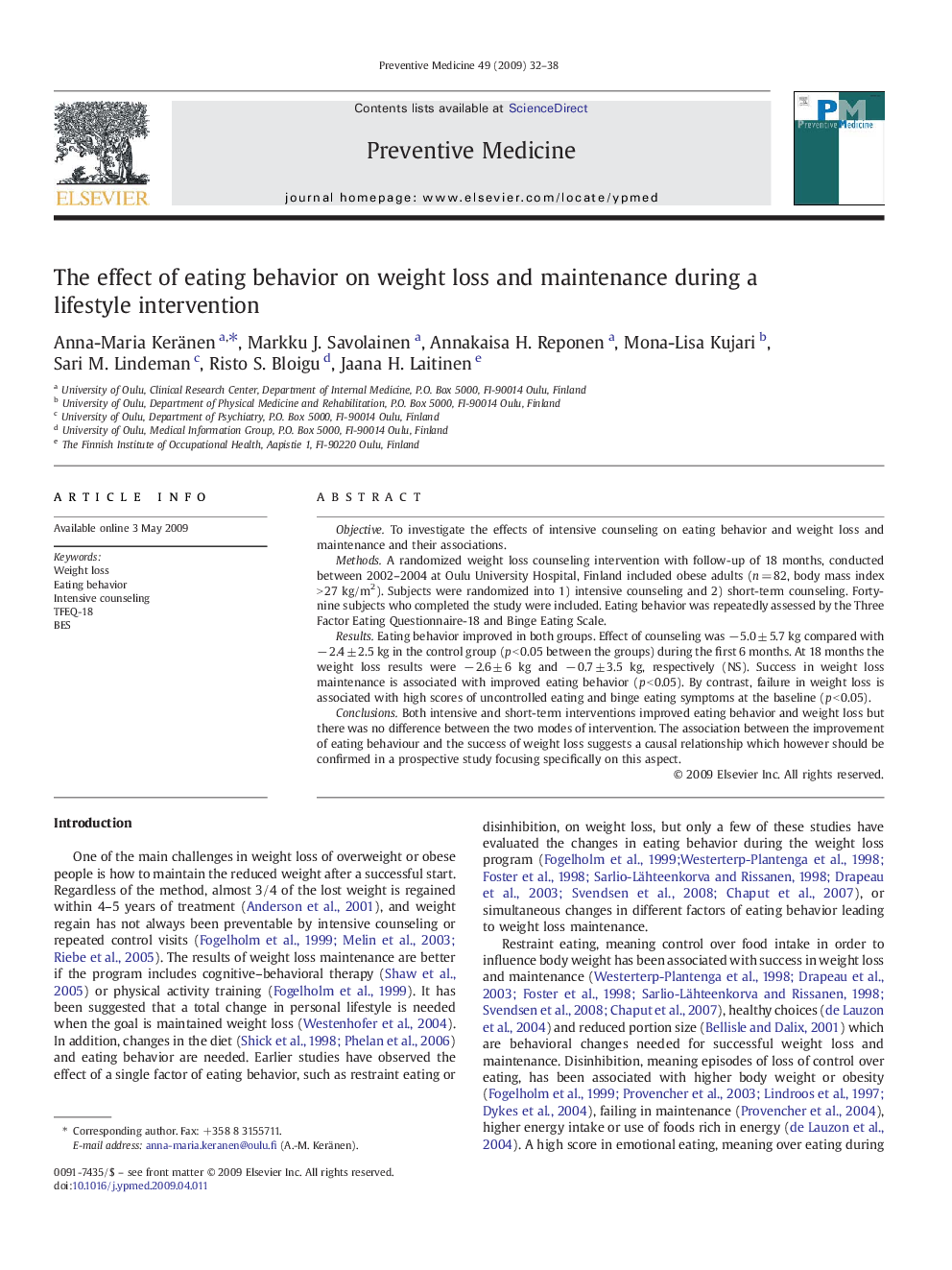| Article ID | Journal | Published Year | Pages | File Type |
|---|---|---|---|---|
| 3101204 | Preventive Medicine | 2009 | 7 Pages |
ObjectiveTo investigate the effects of intensive counseling on eating behavior and weight loss and maintenance and their associations.MethodsA randomized weight loss counseling intervention with follow-up of 18 months, conducted between 2002–2004 at Oulu University Hospital, Finland included obese adults (n = 82, body mass index > 27 kg/m2). Subjects were randomized into 1) intensive counseling and 2) short-term counseling. Forty-nine subjects who completed the study were included. Eating behavior was repeatedly assessed by the Three Factor Eating Questionnaire-18 and Binge Eating Scale.ResultsEating behavior improved in both groups. Effect of counseling was − 5.0 ± 5.7 kg compared with − 2.4 ± 2.5 kg in the control group (p < 0.05 between the groups) during the first 6 months. At 18 months the weight loss results were − 2.6 ± 6 kg and − 0.7 ± 3.5 kg, respectively (NS). Success in weight loss maintenance is associated with improved eating behavior (p < 0.05). By contrast, failure in weight loss is associated with high scores of uncontrolled eating and binge eating symptoms at the baseline (p < 0.05).ConclusionsBoth intensive and short-term interventions improved eating behavior and weight loss but there was no difference between the two modes of intervention. The association between the improvement of eating behaviour and the success of weight loss suggests a causal relationship which however should be confirmed in a prospective study focusing specifically on this aspect.
